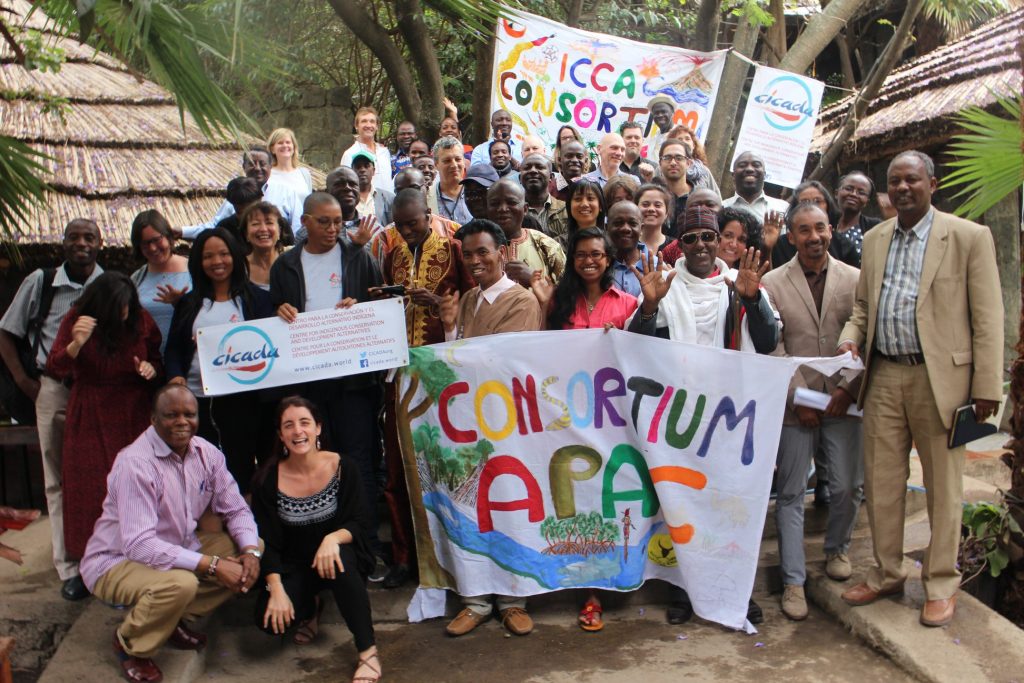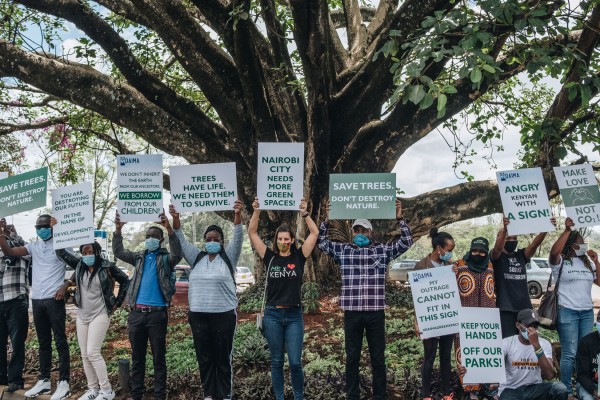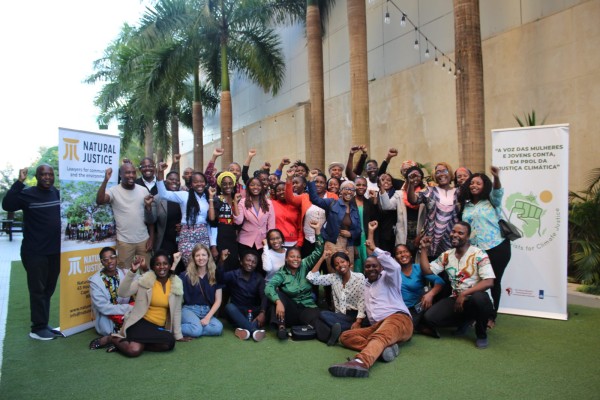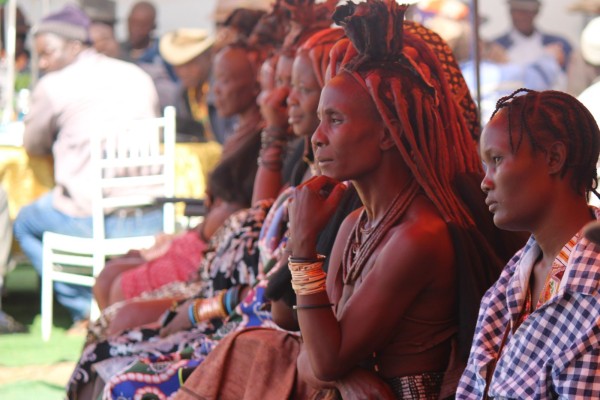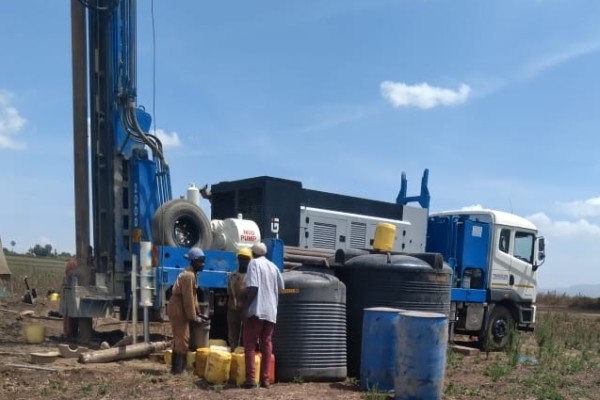Natural Justice attended the first Regional Assembly of the ICCA Consortium in Africa and the ICCA Consortium General Assembly between 6-13 November in Bishoftu, Ethiopia. These events were marked by the enthusiasm of volunteers and ICCA champions who had one common vision and mission – to protect, preserve and restore ICCAs – which stands for ‘Indigenous and Community Conserved Areas’, also known as ‘Territories of Life’.
Territories of life are crucial components in inclusive conservation systems, compatible with the wellbeing of people – as described in the ICCA Consortium’s Policy Brief No. 5 – which applies to most of the communities that Natural Justice works with. They are found throughout the world, in different ecosystems and across all cultures.
ICCAs have varied names but have common features: a) the existence of a strong bond between a particular community and a territory, b) an institution that is able to make decisions and rules, and ensure their implementation, within the territory; and c) these rules are made to keep the territories in good condition, with integrity for the natural environment and positive results for the people themselves.
It was interesting to hear the views and the reasons for the regionalisation of Africa into five regions for purposes of executing the ICCA Consortium’s work. The northern countries and Horn of Africa would form one region, with East Africa, Central Africa and Southern and West Africa forming the rest of the regions. Each of the regions would then have a representative at the ICCA Consortium. These proposals were subsequently accepted at the ICCA General Assembly, effectively opening a new chapter of its ICCA governance.
Natural Justice is looking forward to playing a more active role at this regional level in the future, building on our existing local work.
The General Assembly was an eventful moment in the history of the ICCA Consortium, when President Teodoro Brawner Baguilat Jr., popularly known as ‘Teddy’, was elected as the new ICCA president. He was elected to replace the most beloved former president of the Consortium, the late Taghi Farvar who passed away in July 2018. Teddy is from the Philippines, where he has championed, among others, a bill on the ‘Recognition and Institutionalization of Indigenous People’s Education Systems’. Teddy has a lot of experience on rights advocacy and has helped shape the legal landscape in the interests of indigenous peoples, and it is hoped that his experience will continue to influence and contribute to the work of the ICCA Consortium and its members going forward.
During the Consortiums’ General Assembly, the work programme for the years 2019 to 2020 was also presented. Natural Justice sees itself as contributing to a main area of the Consortium’s work; that is, securing and monitoring compliance with existing rights in specific situations of threats to ICCAs and their defenders. This involves the global systems of rights responsibilities and mechanisms to support territories of life and their defenders-at-risk, and contributing to building the ICCA Consortium’s institutional basis and capacities.
Within this work, Natural Justice will be partnering with other Consortium members on campaigns, as well as through working in the countries where we currently hold a strong presence and where the communities we work with are based.
Natural Justice’s Barbara Lassen made a presentation on the ongoing work of Natural Justice, including our coordination of legal reviews of ICCAS. This is intensive work involving 26 countries, and it is expected that these reviews will be able to shape discussions on the legal recognition of territories of life, the securing of these territories, legal empowerment of communities and advocacy, and the defence of defenders. Other work that Natural Justice expects to find ourselves involved in will be the legal empowerment of communities who are custodians of ICCAs, which was identified as a need during the workshop. Natural Justice will also be contributing to empowering communities and Consortium members on their rights and responsibilities in terms of governance and self-determination over their territories of life, community land rights, and on various international governance regimes that touch on territories of life. Natural Justice will be contributing to capacity-building and the facilitation of the process of preparing Biocultural Community Protocols, a key component of our work over the years.
From my own perspective, it was interesting to learn about the International Union for Conservation of Nature’s work on the various types of territories of life and it is hoped that we will find points of convergence through which we hope to advance the work of ICCAs. It was also interesting to learn about Ethiopian culture and their indigenous, democratic socio-political system, which is still effective to date. A glimpse into the Ethiopian culture reminds us that ICCAs and other traditional indigenous societies are so diverse in terms of their traditions, but have very particular similarities when it comes to their connection to their land, to nature and their capacity to use their resources in a sustainable manner as long as there is no external intervention.
It was also interesting to learn that communities’ needs vary and are context-based. Any interventions that are designed for a community must, first and foremost, seek to learn from the community, establish its needs and understand what it expects.
Cicilia is the Programme Manager, Traditional Knowledge and Benefit Sharing; Conservation and Customary Use, based in Kenya.

